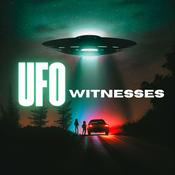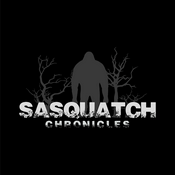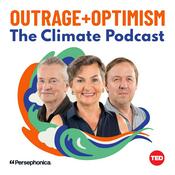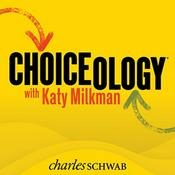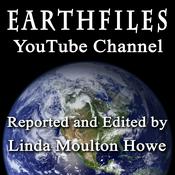65 episodes
- This episode does not argue against renewable energy—renewables are essential to decarbonization—but it does ask what the transition looks like when you account for materials, extraction, and infrastructure.
The clean energy transition is often framed as a straightforward swap: renewables replace fossil fuels, emissions fall, problem solved. But beneath that story sits a harder set of questions. How material-intensive is a renewables-led grid, really? What happens when you account for the steel, concrete, and critical minerals that make wind, solar, and battery storage possible? And if mining expands dramatically to enable decarbonization, what are the environmental and social trade-offs?
To explore these questions, I spoke with Saleem Ali, a systems scientist and industrial ecologist at the University of Delaware who studies the “materials–energy nexus”—the idea that energy systems are constrained not only by fuels and emissions, but by infrastructure, extraction, and supply chains. We talk about why wind and solar can be surprisingly material-heavy up front, how storage options like pumped hydro compare with large battery farms, why nuclear and biofuels remain part of the conversation, and what a more pragmatic approach looks like when every option carries trade-offs.
Links to Resources
The fight over minerals for green energy — and a better way forward - Saleem's 2024 TED Talk
Visit www.case4conservation.com - The intersection of science, politics, and environmental discourse is full of puzzles: why has nuance gone missing from the conversation? Why are heterodox or balanced views often sidelined? And how do echo chambers, alarmist rhetoric, and the erosion of trust hinder lasting progress in conservation?
To explore these questions, I spoke with Roger Pielke Jr., a political scientist well-known for his work on contested science in contentious policy areas, from climate and extreme weather to COVID origins and sports governance.
Links to resources
The Honest Broker - Roger's website and blog, with lots of free content and even more in the paid version.
What Happened on Deliberation Day? 2007 paper mentioned by Roger in which the researchers found that like-minded deliberation led to stronger, more extreme post-discussion views, while mixed groups became more open and less certain.
The Rightful Place of Science: Disasters and Climate Change - Book by Roger, emphasizing evidence-based nuance over alarmism.
Messaging Should Reflect the Nuanced Relationship between Land Change and Zoonotic Disease Risk - BioScience paper that we discussed, on the links between land change and zoonotic spillover risk.
Visit www.case4conservation.com - The concept of rewilding has been applied in various ways, from the simple restoration of a single natural process like removing livestock to allow vegetation to recover, to ambitious proposals to reintroduce long-extinct megafauna. While some applications have obvious conservation benefits, rewilding also raises legitimate concerns, especially about how renewed interactions with reintroduced wildlife like large herbivores and carnivores, might affect human wellbeing, livelihoods, and land use. Rewilding has become a popular and sometimes controversial topic within conservation circles. It has also been gaining traction and growing public and governmental interest as societies search for more holistic approaches to restoring ecosystem processes and biodiversity.
Joining me to unpack what rewilding means, and to explore the potential conflicts and compromises that come with it, is Marine Drouilly. Marine is the Regional Coordinator for Wild Cat Surveys and Research in West and Central Africa with the NGO "Panthera".
Links to resources:
Guidelines for evaluating the success of large carnivore reintroductions - A relevant paper in Biological Conservation co-authored by Marine
Panthera - Website of the organization Marine works for
Visit www.case4conservation.com - Multilateral environmental agreements (MEAs) are negotiated by national governments, but they also include input from various societal groups. One of these groups is youth, and their role in negotiations has grown more visible and coordinated over time. But are these contributions helping to enrich discussions and inspire ambition, or simply adding another layer to already complex processes? And why have separate groups if governments are meant to represent all of their citizens? In this episode, we take a closer look at the place of youth in forums like these — and what constructive and meaningful participation looks like.
My guest is Mika Tan, advisor to the Southeast Asia chapter of the Global Youth Biodiversity Network (among other roles) and a passionate advocate for youth voices in global decision-making.
Links to resources:
Youth in international nature conservation: The example of youth participation in the Convention on Biological Diversity (CBD) - Analysis of the extent and quality of youth participation within the CBD (German article, English abstract).
The contradictions of youth participation for intergenerational justice in urban environmental planning - An article that critiques the politicization of the application of intergenerational justice.
Global Youth Biodiversity Network - Website of the organization that Mika mentions in our discussion.
Visit www.case4conservation.com - One of the most popular terms in conservation these days is “nature-based solutions” (NbS). The concept is centered around the various ways in which conservation (including restoration and sustainable use) can benefit society, economy and environment. NbS are alternatives to engineered solutions to these problems, which benefit people as well as nature. Sounds straightforward, and the concept has been taken up in government policy and largely embraced by conservation science. And yet it has been somewhat divisive, for very different reasons.
Joy Ommer is scientific lead at KAJO, a Slovakia-based geoservices consultancy focused on disaster risk reduction and management. In a recent paper she and some project partners write about the importance of understanding the impacts of nature-based solutions before they are actually implemented. We discussed this and other issues around the NbS concept.
Links to Resources
Quantifying co-benefits and disbenefits of Nature-based Solutions targeting Disaster Risk Reduction - 2022 article in the International Journal of Disaster Risk Reduction by Joy and co-authors, which we refer to in our discussion
Nature-based solutions: using the power of nature - Some examples of NbS on an IUCN webpage
Visit www.case4conservation.com
More Science podcasts
Trending Science podcasts
About The Case for Conservation Podcast
The case for conserving nature and its biodiversity needs to be robust and credible. Sometimes that requires a willingness to re-examine conventional wisdom.Monthly episodes of The Case for Conservation Podcast feature introspective conversations with fascinating experts - from ecologists to economists, young professionals to Nobel laureates, journalists to media personalities.
Podcast websiteListen to The Case for Conservation Podcast, Science Weekly and many other podcasts from around the world with the radio.net app
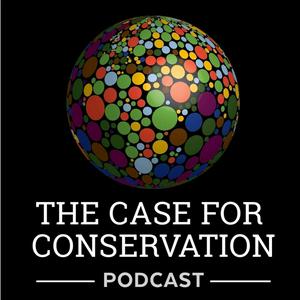
Get the free radio.net app
- Stations and podcasts to bookmark
- Stream via Wi-Fi or Bluetooth
- Supports Carplay & Android Auto
- Many other app features
Get the free radio.net app
- Stations and podcasts to bookmark
- Stream via Wi-Fi or Bluetooth
- Supports Carplay & Android Auto
- Many other app features


The Case for Conservation Podcast
Scan code,
download the app,
start listening.
download the app,
start listening.












